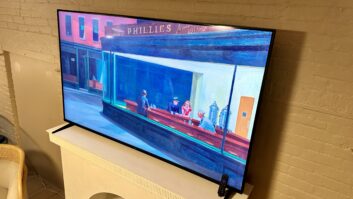MINNEAPOLIS – August was a busy month for Best Buy, which in quick succession named Hubert Joly CEO, reported a 91 percent decline in second-quarter profits, and agreed to open its books to the company’s founder and dissident majority shareholder Dick Schulze, who offered to buy the business for about $8 billion.
The agreement, which followed ten days of private negotiations and public bickering, clears the way for the former chairman and his backers to delve into Best Buy’s non-public financials, round up private equity investors, and make a fully financed definitive proposal within 60 days to acquire the troubled chain.
If rejected, Schulze will have to wait until January before presenting a second bid. Best Buy’s board would then have 30 days to review the second proposal before Schulze could take it directly to shareholders in a proxy fight at the company’s annual meeting in June, or sooner through a specially-convened gathering of stockholders.
Should that fail, Schulze agreed to wait one year before resuming his takeover efforts.
Best Buy could then continue pursuing its own strategic plan under Joly, a turnaround specialist who helped revitalize Vivendi and Electronic Data Systems (EDS), and most recently led Carlson, parent of the Radisson hotel and T.G.I. Friday’s restaurant chains.
In the interim, Best Buy’s much-anticipated turnaround plan was put on hold until Joly, a French national, secures a U.S. work visa and assumes his new post early this month.
Meanwhile the chain reported a fiscal second quarter net profit plunge of 91 percent to $12 million, for its quarter, ended Aug. 4, blaming restructuring charges and increased sales of low-margin TVs and smartphones. Total revenue declined 3 percent to $10.5 billion, and U.S. comp-store sales slipped 1.6 percent — up from a 4.1 percent drop during the year-ago quarter — while online sales increased 14 percent.
On a conference call to discuss the second-quarter, interim CEO and board member Mike Mikan said Joly will inherit “a good deal of advance work” on the strategic plan Mikan helped spearhead. Joly’s appointment came ahead of the board’s projected timetable, he noted, and will bring stability to the company.
Mikan, who had campaigned for the position, also promised a smooth transition.
But mixed reaction to Joly, who lacks a retail background, and the lower than expected financial results, sent Best Buy shares sharply lower following the company’s earnings announcement last month.
Eyebrows were also raised by Joly’s hefty payday at Best Buy, which includes more than $30 million in signing bonuses and other incentives. According to an 8-K filing with the Securities and Exchange Commission (SEC), the “buy-out awards,” which are in addition to an annual base salary of nearly $1.2 million, are compensation for income he has forfeited by leaving Carlson.
The package also includes two contingency payouts: $6.3 million should Joly be unable to obtain the work visa; and twice his salary and target bonus, plus a pro-rated annual bonus, should the company come under new ownership.
The generous terms recall complaints last spring over former CEO Brian Dunn’s $6.6 million severance payout, and retention bonuses worth $2.5 million that were awarded to each of four top execs, including president U.S. Mike Vitelli and chief financial officer Jim Muehlbauer. The bonuses are contingent upon their remaining with the company for at least one year after Joly’s arrival.
Meanwhile, as part of the agreement with Schulze, Best Buy will offer its founder two seats on the board, reflecting his 20-plus percent ownership position. The seats would be revoked if Schulze takes his proposal directly to shareholders or materially violates the agreement’s standstill provisions.
Best Buy had initially proposed an 18-month standstill period that Schulze publicly rejected, calling it “completely unacceptable in light of the fact that urgent change is needed at Best Buy and value is eroding further every day that change is not effected.”
The board has also waived a recent adoption of Minnesota law — essentially a poison pill — that would have prevented Schulze from working with his private equity partners to develop and present an acquisition plan.
Schulze did not comment publicly on the new pact, although Best Buy said he is pleased with the agreement.
Whether Schulze will regain control of the company he created remains to be seen. In a research note, Oppenheimer & Co. analyst Brian Nagel described the situation as “clearly fluid.” But while Best Buy’s strong cash flow and solid balance sheet could support a leveraged buyout (LBO), Nagel believes potential private equity investors will ultimately get cold feet, given “a deteriorating business model” that’s beset by online price competition and a dearth of CE product introductions.












